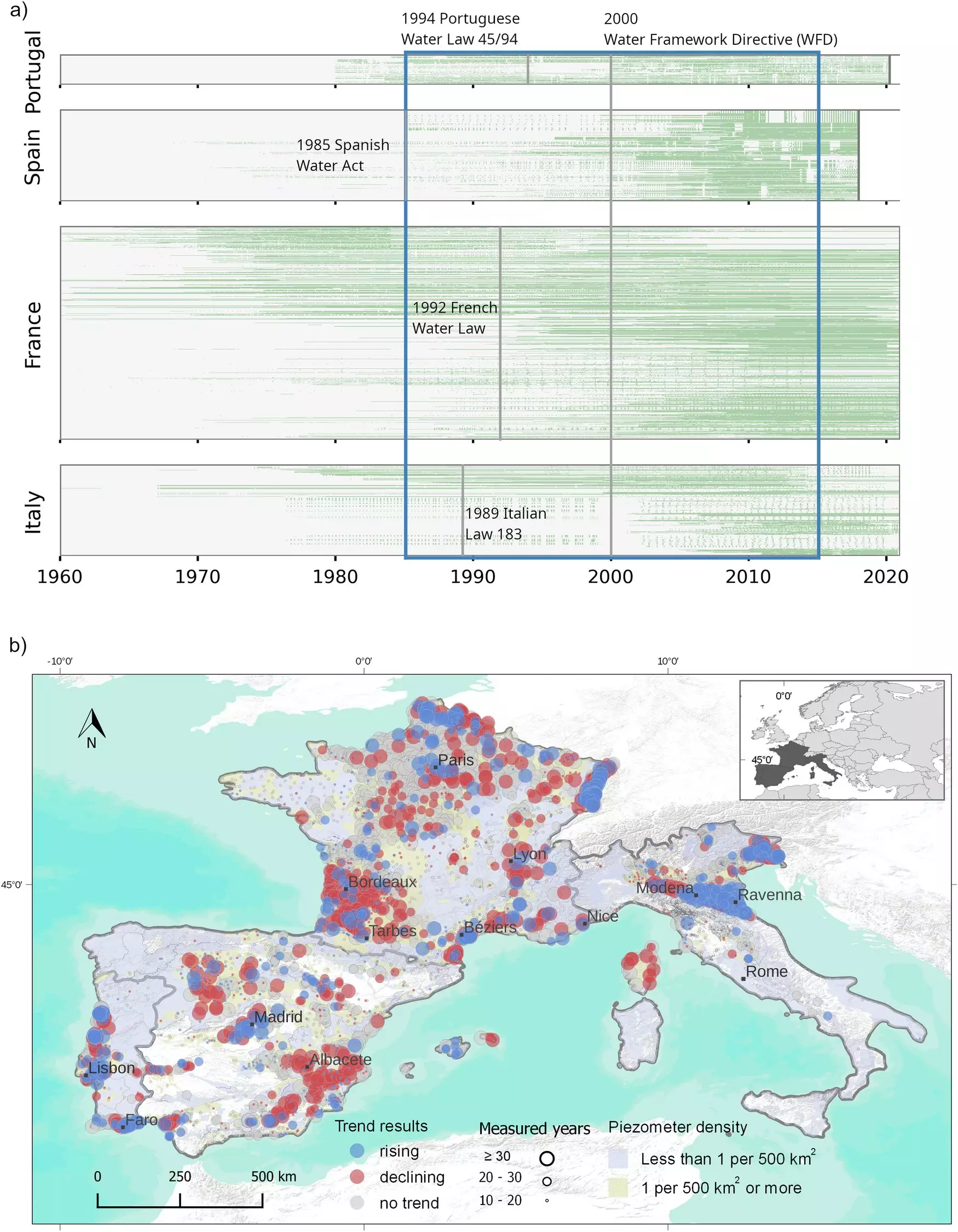

Groundwater is a crucial resource that plays a vital role in sustaining plants, ecosystems, agricultural production, and drinking water supplies. However, the impact of climate change and human activities on groundwater availability cannot be underestimated. Recent research conducted by an international team led by the Helmholtz Centre for Environmental Research (UFZ) sheds light on the state of groundwater levels in Portugal, Spain, France, and Italy over the past six decades.
Contrary to popular belief, the study reveals that groundwater levels in southwestern Europe are not universally declining. Instead, the decline is primarily evident in semi-arid regions with intense agriculture and frequent droughts. Moreover, temperate regions with high levels of urbanization also show signs of declining groundwater levels. The researchers emphasize the importance of nuanced and localized approaches to groundwater management, rather than making broad generalizations based on limited data.
The data analysis indicates that stable groundwater levels are predominantly found in temperate regions with consistent high precipitation rates, such as northern France. The natural recharge rates in these areas help maintain stable groundwater levels. However, in regions like the lower Po River basin near Ravenna, groundwater levels are rising due to a combination of natural factors, human activities, and land subsidence. On the other hand, semi-arid regions like Tarbes in France and Medina del Campo in Spain are experiencing prolonged declines in groundwater levels due to reduced rainfall and elevated temperatures caused by climate change.
Intensive agriculture plays a significant role in groundwater depletion, especially in the Mediterranean countries studied. These nations are major producers of fruits, vegetables, and grains within the EU, and groundwater accounts for a substantial portion of irrigation water. In urban and industrial areas like Lyon, Nice, Modena, and Bordeaux, groundwater levels have been steadily declining since the 1960s due to increased domestic and industrial consumption. Popular tourist destinations like Béziers also face groundwater depletion as a result of heightened extraction for summer tourist activities.
While halting groundwater decline in urban areas is challenging, the researchers highlight successful management practices in semi-arid, agricultural regions. For instance, La Mancha Oriental in Spain saw a reversal in groundwater level trends thanks to the establishment of a water user association that implemented monitoring, remote sensing, and individual water use plans. These proactive measures effectively restored groundwater levels in the region and can serve as a model for sustainable groundwater management practices in other regions.
As climate change intensifies, the findings from southwestern Europe offer valuable insights for groundwater management globally. Countries like Germany, facing increasing groundwater demand and diminishing aquifer recharge, can learn from the experiences in southwestern Europe. It is crucial to adopt anticipatory approaches to sustainable groundwater use, implement effective irrigation methods, enhance stakeholder engagement, and avoid past mistakes to secure groundwater resources for the future.
The complexities of groundwater management in southwestern Europe underscore the need for tailored and informed strategies to address the varying challenges faced by different regions. By learning from both successes and failures in groundwater management, countries can work towards sustainable and resilient water resource management practices in the face of ongoing environmental changes.
In the world of pharmaceuticals, innovation often hinges on finding new compounds that can lead…
In the heart of the Amazon basin, drastic climate changes present an alarming reality that…
Air fryers have rapidly surged in popularity, captivating home cooks and culinary enthusiasts alike. When…
In an era where technology and social media reign, the importance of sleep often takes…
In an era where environmental consciousness is paramount, the maritime industry has long been scrutinized…
Radionuclides, often relegated to discussions surrounding nuclear energy and radioactive waste, have far-ranging implications for…
This website uses cookies.